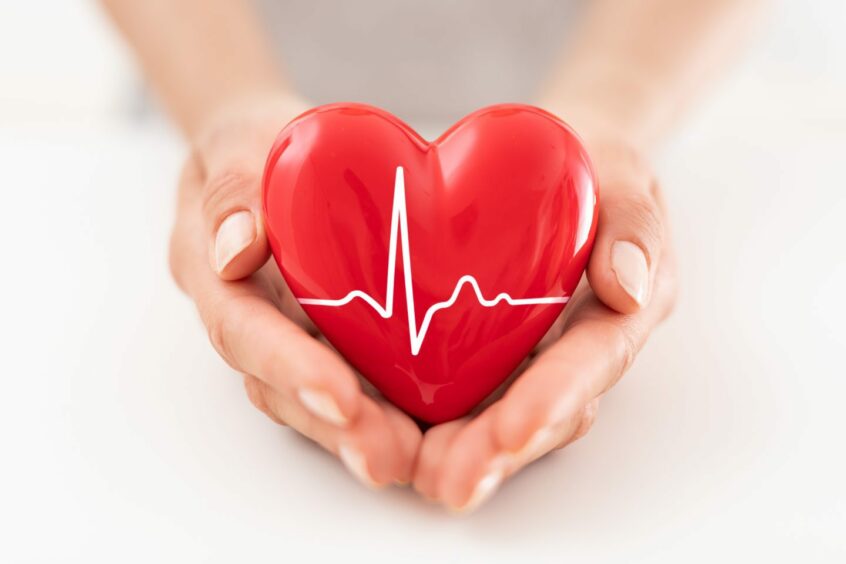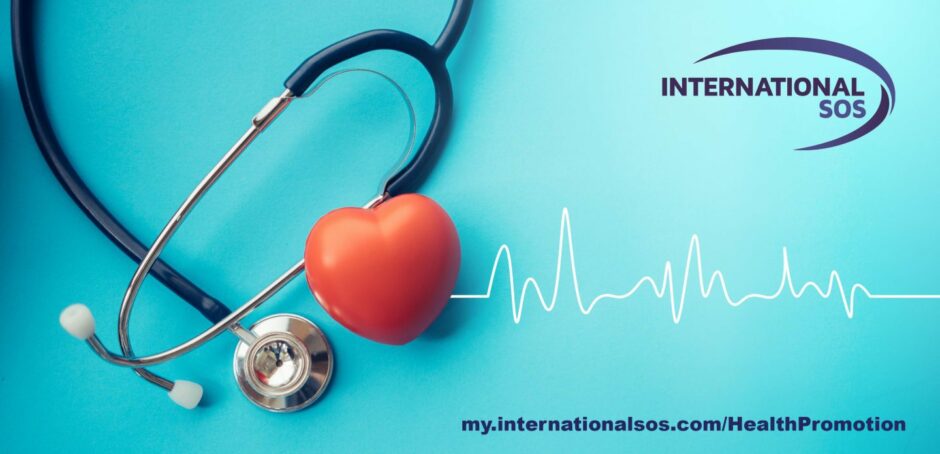
Did you know that 7.6 million people in the UK are living with heart disease? And around 900,000 people are living with heart failure. Heart and circulatory disease cause a quarter of all deaths in the UK – an average of one every three minutes – and strokes cause around 35,000 deaths in the UK each year and are the biggest cause of severe disability in the UK.
Coronary heart disease – also known as ischaemic heart disease – is the most common type of heart disease and is the most common cause of heart attack. There are more than 30,000 out-of-hospital cardiac arrests each year in the UK, with a survival rate of less than one in 10.
Cardiovascular disease is a range of diseases involving the heart or blood vessels, including coronary heart disease, angina, myocardial infarction (heart attack), hypertension, stroke and vascular dementia.
So what are the causes of cardiovascular disease? Some, such as age, gender, family history and ethnicity are non-modifiable. However, as we are all aware, many cases of cardiovascular disease can be prevented by adopting a healthier lifestyle, and there are some risk factors that we are able to influence: high blood pressure; smoking and other tobacco use; obesity; high cholesterol; physical inactivity; poor diet; diabetes; and excessive alcohol intake.
But what exactly is high blood pressure, and what is cholesterol?
Blood pressure is the pressure of blood in your arteries – the vessels that carry blood from your heart to your brain and the rest of your body. High blood pressure, or hypertension, means that the heart has to work harder to pump blood around your body and can lead to heart and circulatory disease like heart attack and stroke, and can also cause kidney failure, heart failure, problems with your sight and vascular dementia.
More than one in four people in the UK have high blood pressure but many will not be aware they have it – there are rarely noticeable symptoms – which is why one of the most important steps people can take is to have their blood pressure checked and take any action required to reach and maintain a healthy blood pressure.
The other factor it is important to monitor is your cholesterol level. Cholesterol is a waxy substance found in every cell in your body. It plays a vital role in how your body works, and is especially important for your brain, nerves and skin. So the body needs cholesterol to work properly – but too much of the wrong type of cholesterol can cause narrowing of the arteries, leading to heart attack and stroke.
There are two types of cholesterol – HDL and LDL. High Density Lipoproteins (HDL) contain lots of protein and very little cholesterol. They carry cholesterol away from the cells and back to the liver; the liver then removes the cholesterol from the body. HDL cholesterol is sometimes called good cholesterol because it helps rid your body of excess cholesterol, which is then less likely to end up in your arteries. Only one-third to one-quarter of blood cholesterol is carried by HDL.
Low Density Lipoprotein contain lots of cholesterol and its job is to deliver cholesterol to the cells where it is needed. It takes cholesterol to your arteries, where it can collect in the artery walls. Too much cholesterol in your arteries may lead to a build-up of plaque, increasing the risk of blood clots in your arteries.
High triglycerides are also known to contribute to the risk of heart disease and other diseases of the heart and blood vessels, and very high triglyceride levels can cause serious medical conditions such as pancreatitis.
So, what can you do to reduce your risk of cardiovascular disease? First of all, know your numbers! Lifestyle assessments will give you the information you need so you are aware of your blood pressure and cholesterol levels and will offer advice on any lifestyle changes that may be required.
There are lots of simple changes you can make to your lifestyle. Eat healthily – eat more fruit and vegetables and choose foods low in saturated fats and salt. Keep to a healthy weight. Exercise can keep you healthy, but it doesn’t have to mean running marathons – be more active and keep it going long term. Stopping smoking is one of the best things you can do, both for your blood pressure and overall health. Monitor your alcohol intake. And even the amount of sleep you have can affect your blood pressure, so have a healthy sleep routine.
If you are interested in finding out more about the healthcare solutions offered by International SOS and how we can support your health and wellbeing, please contact Nicola Yates – nicola.yates@internationalsos.com – or visit my.internationalsos.com/ukhealth

Recommended for you
